High-performance filtration membranes can be used for water treatment, clean energy generation, and resource recovery. Our research focuses on the sustainable fabrication of high-performance membranes that remove solutes from aqueous environments. We are also applying the principles of machine learning to guide separation membrane design for the precise separation of and resource recovery from water and wastewater streams.
Ultrafiltration Pilot Plants
Two UF Pilots were deployed at Wycoff and Quarles Water Treatment Plants (Cobb County Marietta Water Authority) for a long-term study of the treatment of spent filter backwash water. The Pilots were able to surpass EPA potable water quality without the addition of any chemicals over the 18-month study, demonstrating the capability of ultrafiltration to add value to water utilities.
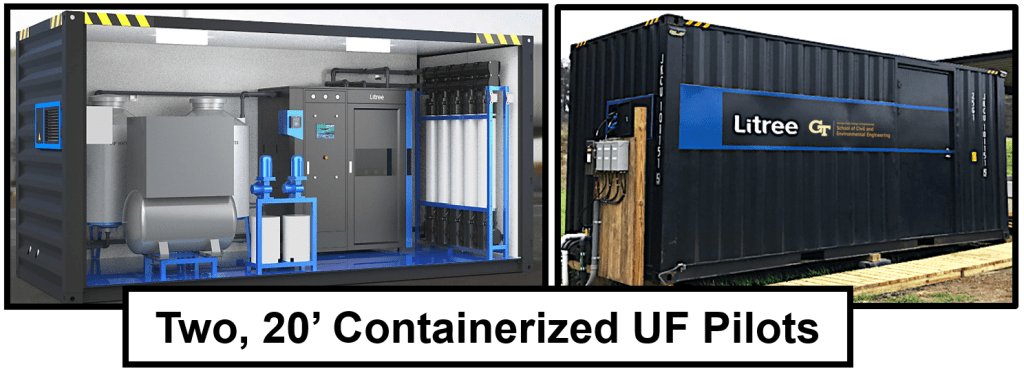
System Optimization for Improved Operating Cost

Revolutionary Membrane Design Using Machine Learning-Bayesian Optimization

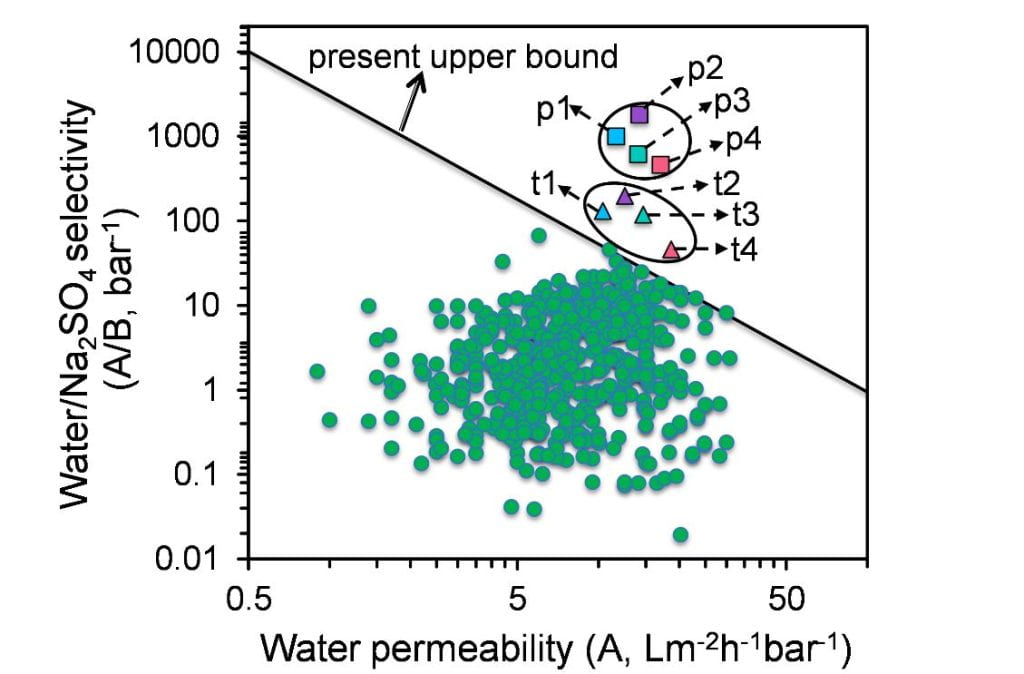
Experimental results from four fabricated membranes validated Bayesian optimization.
Wastewater Nutrient Recovery
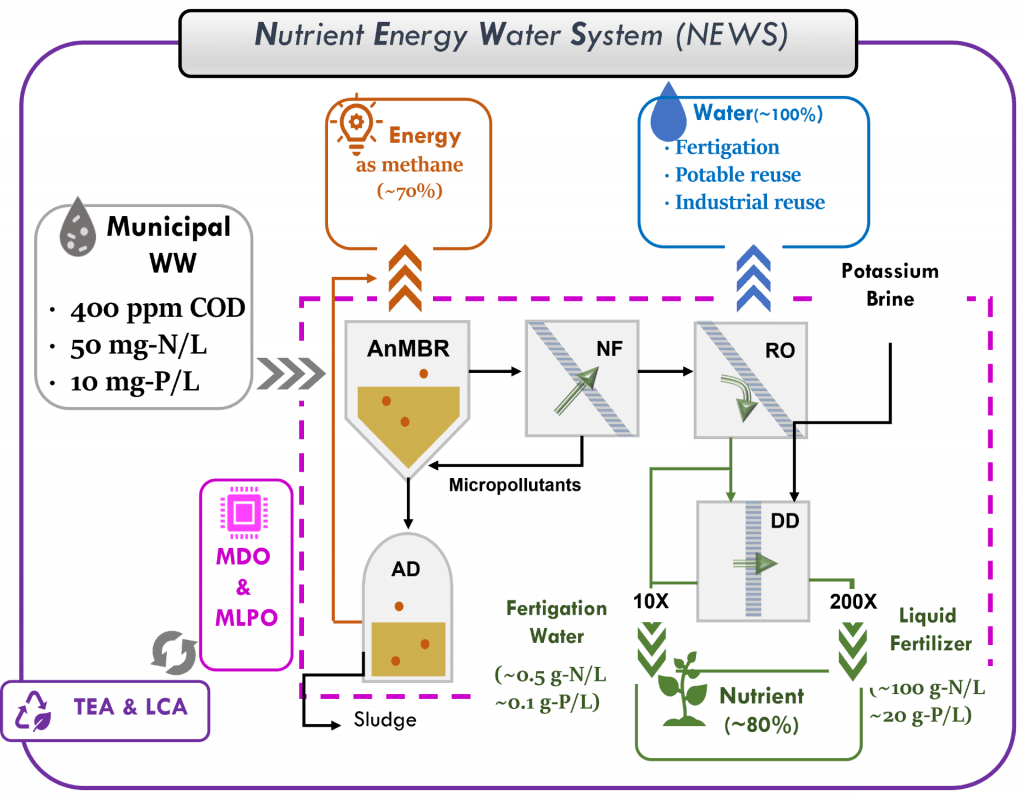
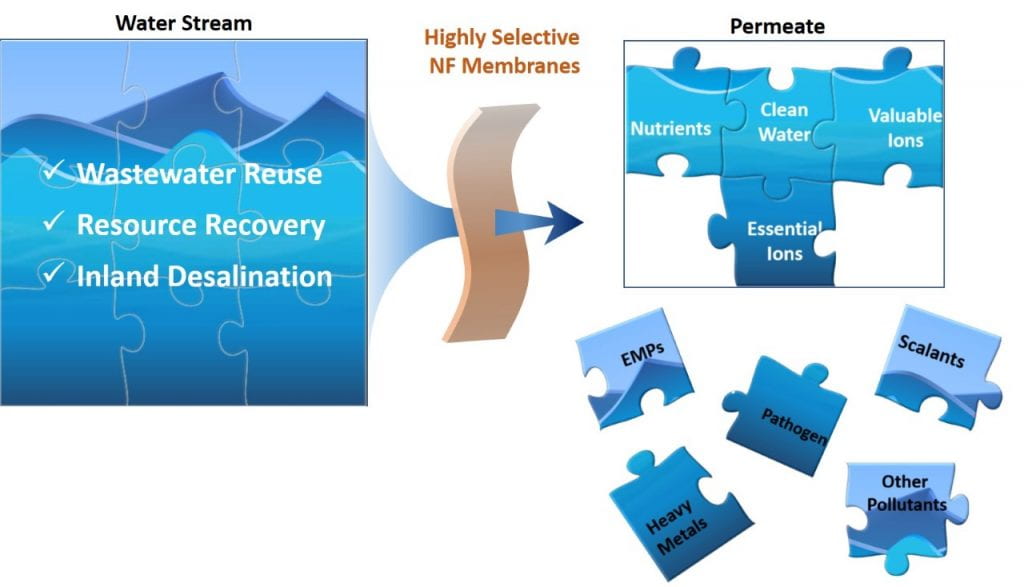
These two-dimensional materials-based membranes can separate out solutes and contaminants, such as polyfluoroalkyl substances, from clean water, nutrients, and essential ions, as shown in the image. After separation, this water can be reused in domestic and agricultural settings, such as hydroponics rigs.

Adsorptive membranes can also be applied to the removal of heavy metals. Specifically, we are working on recovering cobalt and nickel from spent Lithium-Ion Batteries (LIBs) by using adsorptive membranes as beads.
Environmental challenges and opportunities require precise and tailored membrane separation in water and wastewater treatment.
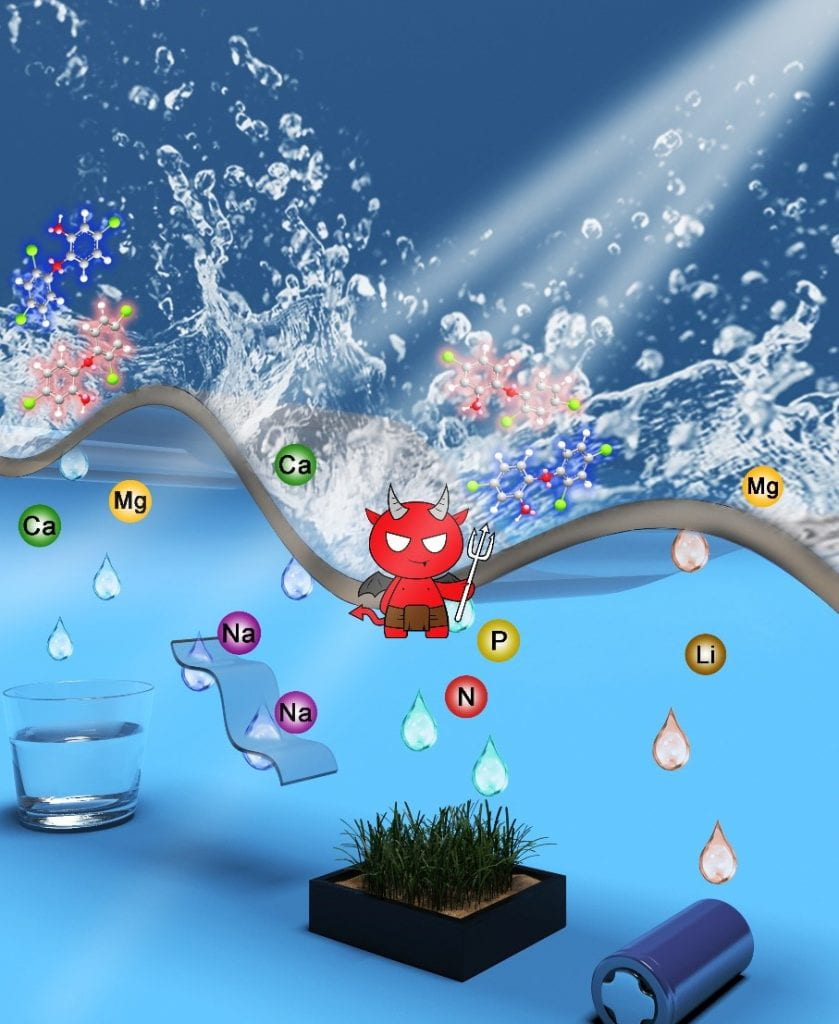
• Drinking water treatment: ✓ EMPs…..✕ Ca2+、Mg2+
• Domestic wastewater treatment: ✓ EMPs…..✕ nutrient ions (N/P/K)
• Pretreatment of RO: ✓ multivalent ions…..✕ monovalent ions
• Salt-lake brines: ✓ Mg2+/ Na+/ K+…..✕ Li+
For more information, see our publications page.


